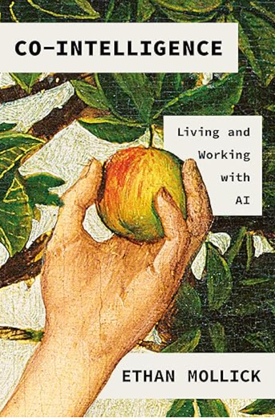Being Contrarian
 Last week one of my followers tweeted, "Again, I find myself disagreeing, to a degree, with @tomjohnson." It was actually a retweet, so someone else was agreeing that they also disagreed with me.
Last week one of my followers tweeted, "Again, I find myself disagreeing, to a degree, with @tomjohnson." It was actually a retweet, so someone else was agreeing that they also disagreed with me.
I know my posts on content strategy had a lot of people disagreeing. First I said content strategy should focus on why help fails. Then I followed that up to say much of content strategy is meaningless semantics. Before that, I said tech writing was misplaced within the context of the English major. Then I argued that academics were just talking with themselves, since they close off access to their publications. An earlier post has me dismissing Google Reader in favor of Paper.li. Another post I wrote scoffs at academics who cling to the term rhetoric, while I simultaneously condemn practitioners for dismissing rhetoric in their work. Another post lists 100 STC unproposals.
The contrarian mentality
I've noticed a trend lately. I believe I'm following a contrarian mentality. The general idea is this: If someone agrees with something, disagree. If someone disagrees with something, agree. Or in another light, always try to see the other, non-obvious side of an issue. Question norms and collapse cliches. Offer opinion rather than obviousness. Look for ideas others miss, and try to miss ideas everyone embraces.
Question everything. Be suspicious of tradition. Find the paradox inherent in every truism. Comfort the afflicted and afflict the comfortable. Be plain in the face of complexity. Find complex ideas where others see them as simple. If an idea is widespread, overturn it. If no one believes an idea, show how it serves as the foundation for everything.
Where I learned to be contrarian
I learned to be contrarian as an English major, but I cemented the philosophy as a writing instructor. As an instructor, I constantly shaped student thesis statements with this template: "Although many people believe X, actually Y is the case."
When you apply this to a topic, it opens up. You stumble into intriguing arguments and ideas not frequently considered. You develop a real thesis, which is an assertion that not everyone by default already believes (otherwise there's no point in arguing it). A daring thesis is one that nobody believes, but which you can successfully argue and persuade your readers toward. That's contrarianism in its purist form: "everything you know about topic X is wrong."
When I read blogs, I'm looking for this contrarian mindset, which usually leads to an interesting thesis/argument. You can see it in posts like In Defense of Lorem Ipsum and Making It Suck. It's exhilarating to watch an unconventional argument unfold, to find yourself being persuaded towards something new.
Writing an essay often leads you down the path of contrarianism. Writing helps you clarify what you think, and then sharpens your analysis, which then extends your thought, and finally takes you to new, untraveled locations. Often these new locations are the opposite of generally held principles and truths.
Contrarianism against itself
I've been praising the contrarian mindset, but by its very nature, it will turn back on itself to argue against its own argument. In this way, it can lead you to jadedness that infects you with constant irritation. When you're not in control, when you're listening to a presentation or lesson, or someone is "training" you, it can be impossible to sit still and absorb it without feeling a rebelliousness bubbling.
The critical/contrarian process starts with questions. Some questions lead to more interesting paths than others. This morning I attended a meeting on technical translation. Almost immediately after introducing myself, I found myself launching into question after question after question. I took over the meeting. I wasn't trying to overturn an idea, but to clarify, to bring to light, to uncover aspects of a fuzzy, unexplained process. I like control, I admit. I want to be the one shaping the direction of the conversation. Selfishly, I want to go in a way that interests me, because otherwise I might end up listening to obvious statements and boring explanations.
I'm not sure how or when I became so contrarian. Nor am I sure it's good. In many ways it's part of the writer's mindset. I don't want you to agree with everything I write, because then I'm probably writing cliches, or laundry lists with titles like 5 Ways to Move Forward in Your Career, or 7 Tips for Better Screenshots. Almost immediately I want to move to controversy: 5 Ways to Seriously Screw Up Your Career. 7 Tips to Illustrate an Idea Without a Screenshot. The Small Art of Big Manuals. C'mon people, make it interesting.
Spice up your events with a shot of contrarianism
We have an educator panel event coming up in our Intermountain chapter. Initially the event's description went something like this: a bunch of educators are going to sit around telling you all about their fine programs and how you can enter them. No, no, no, we all said. By we, I mean the Utah bloggers. No one will come to this event. So we changed it a bit, introduced a conflict. Now the description reads more daring: a panel of educators will explain what they're teaching; practitioners will give feedback about trends in the workplace. If all goes well, the two topics won't match at all.
Contrarianism leads to conflict
Contrarianism inevitably leads to a conflict, but in a good way. Conflict is an essential ingredient to writing because where there is conflict, there is story. The more you wrestle with conflict, the better the story. And story is what makes our lives meaningful. It's what makes life interesting, anyway, so naturally it's the direction in which we gravitate.
This all goes to say, don't always take me so seriously. I will support an argument on my blog as much as I will tear it down. I hope you disagree with me as frequently as you agree with me. It's my brainwashed nature to be contrarian, I suppose. I will give you more opinion than information, because we are drowning in information. By arguing the unconventional, I'll come around to a different point of view, a more interesting, unexplored one. The day everyone agrees with everything I write, I will stop writing.
About Tom Johnson

I'm an API technical writer based in the Seattle area. On this blog, I write about topics related to technical writing and communication — such as software documentation, API documentation, AI, information architecture, content strategy, writing processes, plain language, tech comm careers, and more. Check out my API documentation course if you're looking for more info about documenting APIs. Or see my posts on AI and AI course section for more on the latest in AI and tech comm.
If you're a technical writer and want to keep on top of the latest trends in the tech comm, be sure to subscribe to email updates below. You can also learn more about me or contact me. Finally, note that the opinions I express on my blog are my own points of view, not that of my employer.

